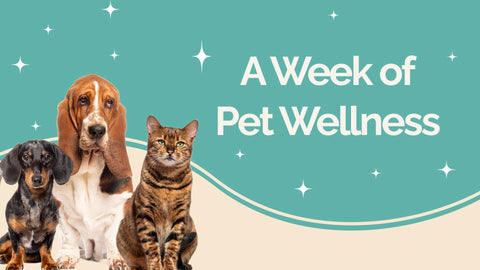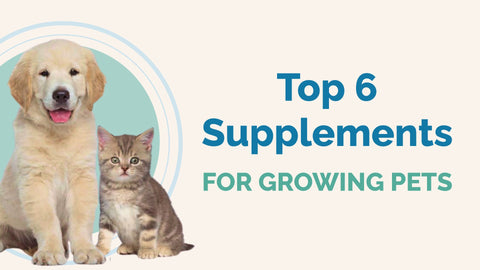

Essential Questions to Ask the Vet for Complete Pet Wellness
Regular veterinary appointments and vet checkups are very important for taking good care of your pets. This is true whether you have a playful puppy, a calm older cat, or anything in between. Wellness exams help find health issues early. This keeps your furry friend feeling good. However, even caring pet parents can feel stressed out during a vet visit. You might wonder what questions to ask or what topics to mention. Knowing the right questions to ask the vet can improve your visit. A bit of preparation can help you make the most of your time at the vet clinic, and your pet will show their thanks, likely with extra snuggles!
Here is a simple checklist to help you feel confident during your next visit.
What are the most important questions to ask the vet?
It's important to talk about your pet's vaccination schedule, diet, signs of illness to look out for, and preventive care during veterinary visits. Bring up any health concerns you may have. You can ask for tips on dental care and how to prevent parasites, like fleas, ticks, and heartworm.
Before the Visit: Prep Like a Pro
A good vet visit begins before you head out the door. Spend a few minutes writing down any strange or new things you have seen in your pet's behavior, appetite, or energy. Pets can't tell us when something is wrong, so it is our job to speak for them.
Here’s what to bring and prep:
-
A list of what your pet is currently taking, like supplements, medicines, and how much
-
Comments on any changes to their eating, drinking, sleeping, or bathroom habits
-
A stool sample (if asked for or if there are GI problems)
-
Your pet's medical history or vaccination records (important for new vets)
-
Any questions or worries you want to discuss
Pro tip: If something seems wrong at home, but it’s not happening at the clinic, bring a photo or video. For example, if your pet is limping, coughing, or acting differently, it can really help your vet understand the issue better.
What to Ask Veterinarians During the Exam
When you enter the exam room, you might forget the long list of questions you wanted to ask. Having a mental or written list of questions to ask the vet can help you keep track. Your vet is there to assist you, and they value a pet parent who is interested and well-informed!
Here are some good questions to think about for a wellness exam:
-
Is my pet a healthy weight and in good shape?
-
Have you noticed any early signs of dental disease or arthritis?
-
Should we consider bloodwork or other lab tests this year?
-
Are there any changes related to age or lifestyle that I need to make?
-
What supplements or changes to their diet can help my pet's wellness?
Don’t worry about asking for more questions or asking for simple explanations. A good vet will want you to feel sure about the care plan.
articleproducts1
Checkups: Don’t Skip the Preventive Care Talk
Wellness visits are not only for checking your pet's vitals. They are a great opportunity to prevent health problems. Your vet can suggest ideas for keeping your pet healthy all year. This includes things like flea control and dental cleanings.
Topics to ask about include:
-
Vaccination updates – Do we need any boosters this year?
-
Parasite prevention – What should I use for fleas, ticks, and heartworm?
-
Dental health – Do I need professional cleanings? What can I do for it at home?
-
Spay/neuter status – If I haven't done it yet, when should I?
-
Behavioral changes – Are these normal or should I look into them more?
Watching for these preventive care things can help improve your pet's quality of life. It can also help you avoid serious health problems in the future.
Concerns about Pet's Weight and Diet
Weight and nutrition are key topics to discuss during a wellness exam. If your pet is slightly underweight or has some extra pounds, your vet can evaluate their body condition. They can suggest changes to help your pet live a healthier and longer life.
During your visit, ask your vet:
-
Is my pet a healthy weight for their breed and age?
-
Do I need to change how much I feed them, how often, or the treats I give?
-
Would a special diet, like senior or weight management food, be better?
-
Are there any signs that my pet has nutrition problems or food sensitivities?
-
Should I think about adding supplements to help with digestion, metabolism, or joint health?
Sudden weight gain or loss might show there is a problem like thyroid issues, kidney problems, or gut health. It is important to tell your vet about any recent changes in your pet's appetite, poop, or how much they move, even if these changes feel minor. Your vet can help find out what’s wrong and help create the best feeding plan for your pet's needs.
Understanding and Addressing Behavioral Changes
Behavioral changes in pets can happen gradually or quickly. No matter how they occur, it is important to talk about them during your pet's wellness exam. to ensure an accurate diagnosis. These changes might show signs of health problems. Pets use body language, habits, and routines to communicate. When something changes, it could mean, “Something’s not right.”
Let your vet know if you see changes like:
-
More anxiety, anger, or wanting to be alone
-
A lot of loud noises or needing to be close
-
Changes in how they sleep or feel energetic
-
Not letting you know when to go outside or having accidents suddenly
-
Walking back and forth, being restless, or doing strange actions over and over
These changes may happen because of physical pain, aging, emotional stress like a recent move or loss, or even health problems that haven't been found. Your vet can help find out what is causing the issue and suggest what to do next. This could involve tests, training methods, changes to your pet's routine, or natural calming products.
Prana Pets has gentle products that do not cause drowsiness. Our CBD Oil, Nervous System Support, and Zen Pack help your pet feel balanced. These solutions are designed to reduce anxiety and make your pet feel calm and safe at home.
When you are not sure, voice your concerns. Actions and behaviors are usually the first hints that your pet's health may need some help. The earlier you notice these signs, the better it will be for them.
After the Exam: Follow-Up Matters
Once the exam is done and you are on your way home (with treats!), take a moment to read the vet's notes. If the vet prescribed a new medication or a supplement, make sure you know how much to give and when. It is also good to set reminders for future visits, boosters, or follow-up appointments.
Here’s a quick post-visit checklist:
-
Look over the care instructions and note what you need to do next.
-
Put your next appointment or lab work on your calendar.
-
Include any new supplements in your daily routine (we really like natural wellness!).
-
Keep an eye out for any side effects or improvements, and let your vet know about them.
-
Give your pet a snug— they deserve it after doing so well!
articleproducts2
Supporting Your Pet's Wellness Between Visits
Regular visits to the vet are important, but wellness is more than that. Daily habits, good nutrition, and natural supplements can help your pet’s immune system, digestion, joint health, and more.
At Prana Pets, we provide gentle and effective herbal and homeopathic remedies for your pets. We want to help them thrive from puppyhood to their golden years. Whether you need support for gut health with our Cat Probiotic Powder, want to ease stress with CBD Oil, or keep joints comfortable with our Mobility & Coat Care Chews for Dogs, we are here to help your pet on their journey to lifelong wellness.
A healthy pet is a happy pet. We want more tail wags and purring cats.
Financial Considerations and Explaining Bills
Let’s be real. Visits to the veterinary clinic can be surprising when it comes to prices. This is especially true if the vet suggests tests, imaging, or treatments. That’s why it makes sense to ask about costs. It is also good to understand what your pet really needs versus what might be optional.
During your wellness exam, consider asking:
-
What is the total estimated cost for today’s visit?
-
Are there any urgent tests or treatments that need to be done now, or can they wait?
-
What long-term preventive care options give the best value?
-
Are there cheaper alternatives to prescriptions or treatments?
-
Do you provide payment plans, wellness packages, or help with insurance claims?
A good vet will listen to your worries. They will help you focus on your pet's care without costing too much. It's important to talk about the costs openly.
Bonus tip: A lot of pet parents save money in the long run by using natural supplements. These supplements help keep pets well and lower the chance of long-term health problems. At Prana Pets, we think preventative care should be affordable. We offer daily support for the immune system and digestive health, along with formulas for joints, skin, and calming.
Questions Impacting Pet Insurance Decisions
If you have pet insurance or are thinking about getting it, your vet visit is a good time to get important information. Knowing what is covered and what is not can help you make the best choices. Properly recording your visits can also save you both time and money.
Here are helpful questions to ask during the exam:
-
Can I have a detailed invoice that shows diagnosis codes or treatment notes?
-
Will the services I get today be seen as routine or diagnostic by my insurance?
-
What kinds of coverage do other clients find most useful for pets of this age or breed?
-
Are there any pre-existing conditions I should know about before I sign up for insurance?
-
How do you help clients with insurance claims or paperwork?
If you are looking at different plans, talk to your vet. Ask about common health issues your pet may have based on their age, breed, or lifestyle. This can help you pick a plan that provides the right care for your pet.
Preventive care includes things like supplements and wellness routines. These may not always be paid for by insurance, but some plans do allow the use of HSA/FSA money to be spend on natural supplements. Preventative supplements can help lower the chances of high medical bills later. For this reason, many Prana Pets customers mix insurance with our holistic formulas. This approach gives them proactive and affordable care.
Asking some important questions today can help you keep your pet's health safe and save money in the future.
Getting ready for your next vet visit? Print this checklist or save it as a bookmark. This way, you can feel prepared and very confident when you go in!
articlebanners1




